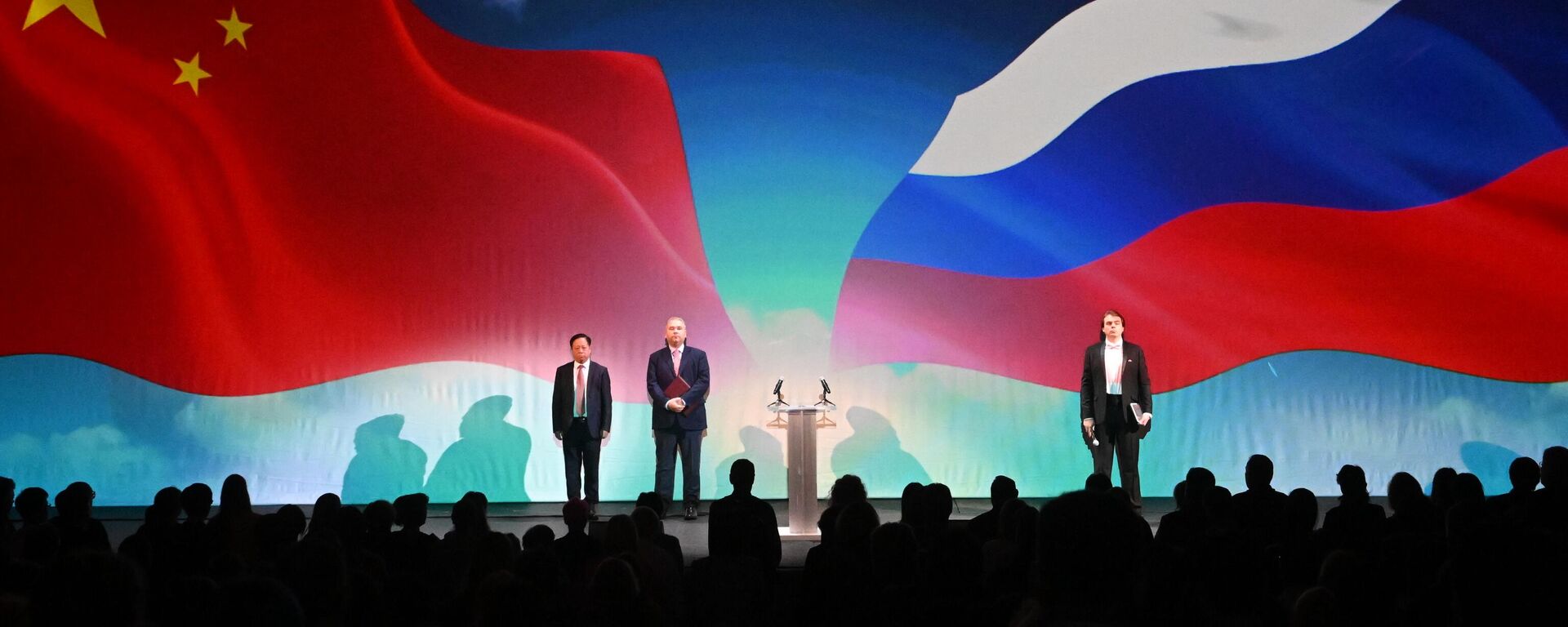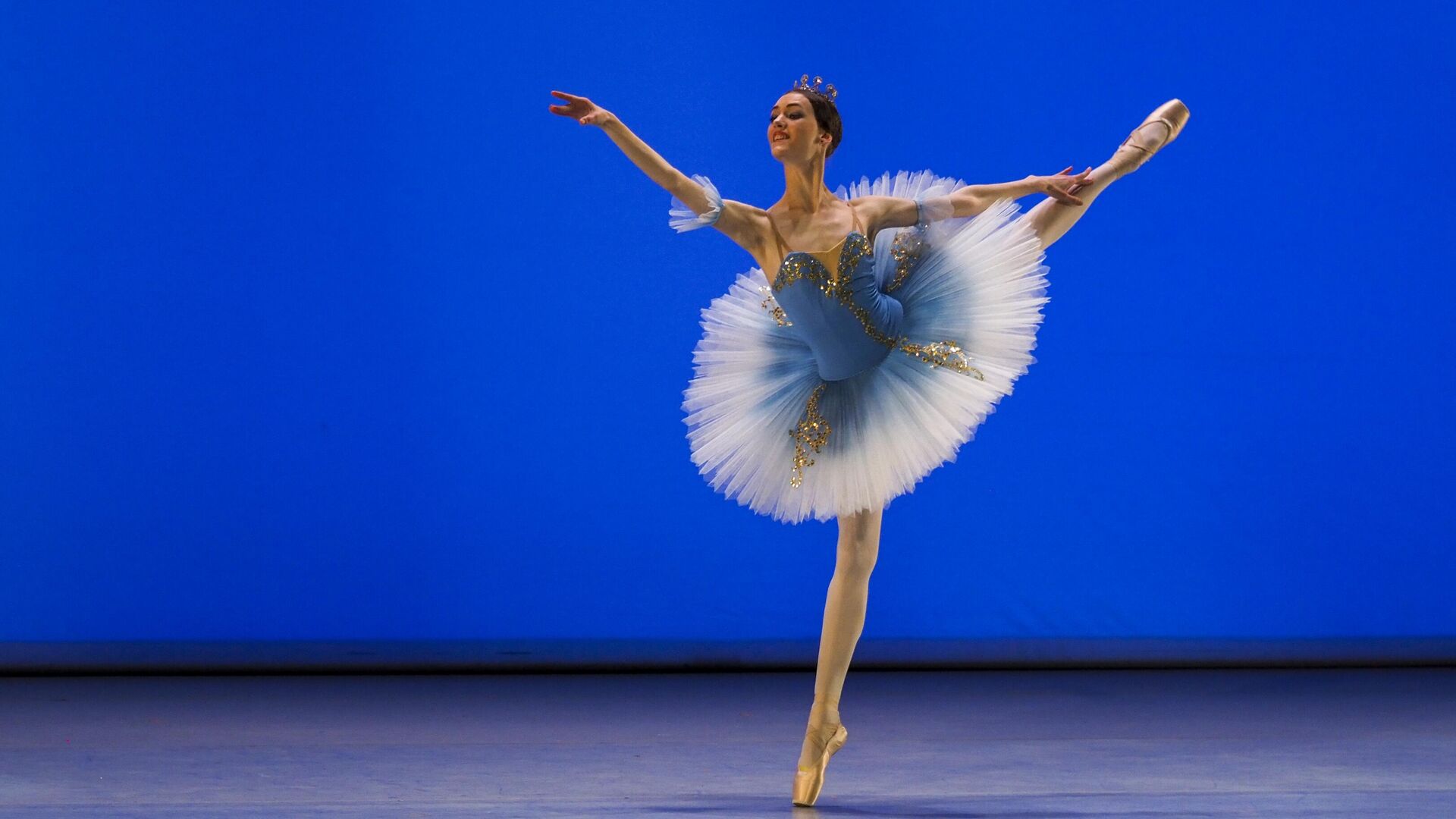https://sputnikglobe.com/20240624/russian-seasons-festival-amazes-brazil-1119138732.html
Russian Seasons Festival Amazes Brazil
Russian Seasons Festival Amazes Brazil
Sputnik International
As part of an ongoing series of shows bringing the Russian culture to stages all over Brazil, it is now Sao Paulo’s turn to host the Russian Seasons festival.
2024-06-24T12:21+0000
2024-06-24T12:21+0000
2024-06-26T14:54+0000
beyond politics
sergei diaghilev
nikolai tsiskaridze
brazil
russia
sao paulo
vaganova ballet academy
sputnik
rio de janeiro
alexei labetskiy
https://cdn1.img.sputnikglobe.com/img/07e8/06/1a/1119141888_0:223:3244:2048_1920x0_80_0_0_5128a8f83174d74016e18fc16979c8bc.jpg
On Monday, the Sao Pedro Theatre in Sao Paulo was chosen to host vibrant displays of the Russian culture. With local authorities and dance enthusiasts in attendance, the event welcomed the world-renowned Vaganova Ballet Academy to the country. Among those present at the festival was Russian Ambassador to Brazil Alexey Labetskiy.The ambassador told Sputnik Brazil that he was “absolutely convinced that Brazil has a lot of interest in Russian culture.”“No doubt, it was [Russian art critic and Ballets Russes founder Sergei] Diaghilev, who first brought the classics to Rio de Janeiro a century ago," he added. "And now we are bringing back the heirs of the Russian classical ballet, who raised the culture to unimaginable heights.”At a press conference with Labetskiy, Vaganova Academy of Russian Ballet rector Nikolay Tsiskaridze highlighted the importance of promoting Russian culture in Brazil.He added that he puts “high hopes in the Rio de Janeiro workshop” and is “eager to see who will come [there].”Cancel Culture? A Thing of the Past!At the opening of the Russian Seasons in Brazil, Russian Minister of Culture Olga Lyubimova gave an exclusive interview to Sputnik Brazil, addressing cancel culture and maintaining Russia’s global cultural ties.Responding to a question about the changing trend in acceptance of Russian culture, the minister expressed concern about the negative influence of some political and public figures from hostile countries who have used social media to urge a rejection of Russian culture.Lyubimova also noted that despite that prejudice, the world’s largest musical theaters continue to celebrate Russian composers — and that the names of iconic figures such as Pushkin, Tchaikovsky and Prokofiev are still widely recognized.
https://sputnikglobe.com/20240119/bolshoi-theater-will-familiarize-china-with-russian-culture-1116270092.html
brazil
russia
sao paulo
rio de janeiro
Sputnik International
feedback@sputniknews.com
+74956456601
MIA „Rossiya Segodnya“
2024
Sputnik International
feedback@sputniknews.com
+74956456601
MIA „Rossiya Segodnya“
News
en_EN
Sputnik International
feedback@sputniknews.com
+74956456601
MIA „Rossiya Segodnya“
Sputnik International
feedback@sputniknews.com
+74956456601
MIA „Rossiya Segodnya“
russian ballet, russian seasons in brazil, russian seasons festival in brazil, bolshoi theatre, russian ballet seasons, russian festival in sao paulo
russian ballet, russian seasons in brazil, russian seasons festival in brazil, bolshoi theatre, russian ballet seasons, russian festival in sao paulo
Russian Seasons Festival Amazes Brazil
12:21 GMT 24.06.2024 (Updated: 14:54 GMT 26.06.2024) As part of an ongoing series of shows bringing the Russian culture to stages all over Brazil, it is now Sao Paulo’s turn to host the Russian Seasons festival.
On Monday, the Sao Pedro Theatre in Sao Paulo was
chosen to host vibrant displays of the Russian culture.
With local authorities and dance enthusiasts in attendance, the event welcomed the world-renowned Vaganova Ballet Academy to the country. Among those present at the festival was Russian Ambassador to Brazil Alexey Labetskiy.
The ambassador
told Sputnik Brazil that he was “
absolutely convinced that Brazil has a lot of interest in Russian culture.”
“It is worth remembering that it was in [Brazil] where all the classical works were translated from Russian to Portuguese," Labetskiy said. "Until recently, Dostoevsky was translated either from French or English. This occurred [for the first time] in Brazil. The Russian ballet is well represented here too.”
“No doubt, it was [Russian art critic and
Ballets Russes founder Sergei] Diaghilev, who first brought the classics to Rio de Janeiro a century ago," he added. "And now we are bringing back the heirs of the
Russian classical ballet, who raised the culture to unimaginable heights.”
At a press conference with Labetskiy, Vaganova Academy of Russian Ballet rector
Nikolay Tsiskaridze highlighted the importance of
promoting Russian culture in Brazil.“Our first visit to Joinville [third largest municipality in the southern region of Brazil] was profound, it resulted in the opening of the Bolshoi Theatre School 24 years ago," Tsiskaridze said "Now we have an important Russian ballet center in Brazil. Many students there already work in several theaters around the world, including Russia.”
He added that he puts “high hopes in the Rio de Janeiro workshop” and is “eager to see who will come [there].”

19 January 2024, 15:07 GMT
Cancel Culture? A Thing of the Past!
At the opening of the Russian Seasons in Brazil, Russian Minister of Culture
Olga Lyubimova gave an exclusive interview to Sputnik Brazil, addressing cancel culture and maintaining
Russia’s global cultural ties.Responding to a question about the changing trend in acceptance of
Russian culture, the minister expressed concern about the negative influence of some political and public figures from hostile countries who have used social media to urge a rejection of Russian culture.
“We are hearing shrill cries coming from various politicians, public figures and policies of unfriendly countries spreading on social media, which has turned into an offensive and painful tool of cancelling Russian culture, social media are now saying they no longer need Tchaikovsky,” she told Sputnik.
Lyubimova also noted that despite that prejudice, the world’s largest musical theaters continue to celebrate Russian composers — and that the names of iconic figures such as
Pushkin, Tchaikovsky and Prokofiev are still widely recognized.



